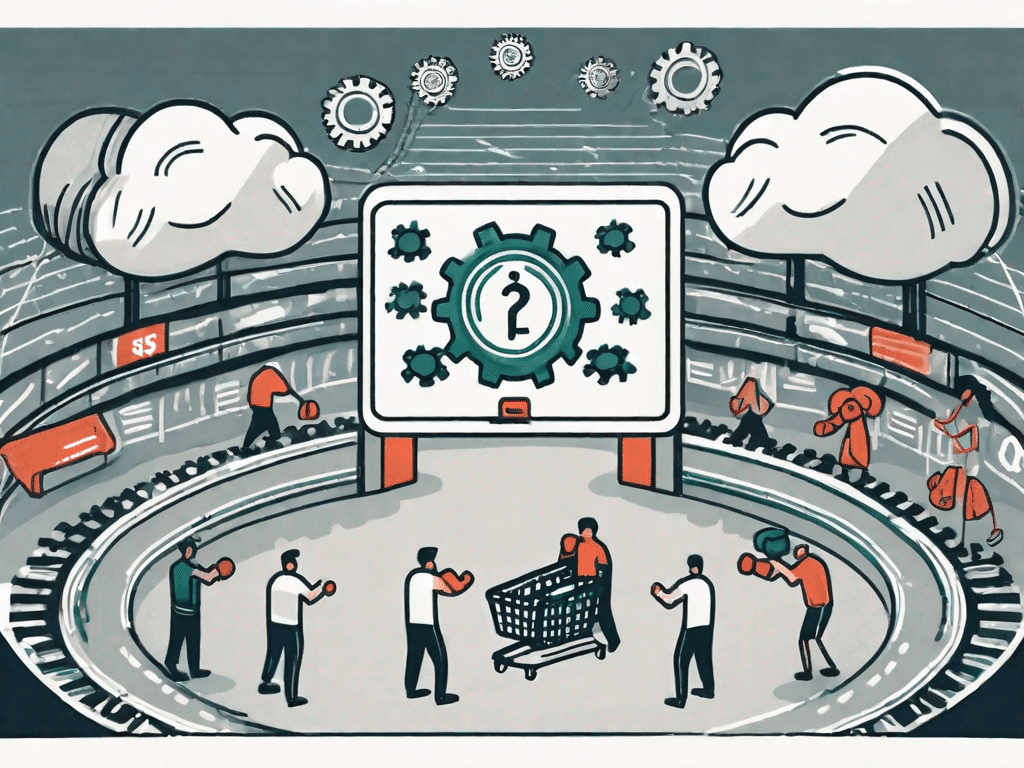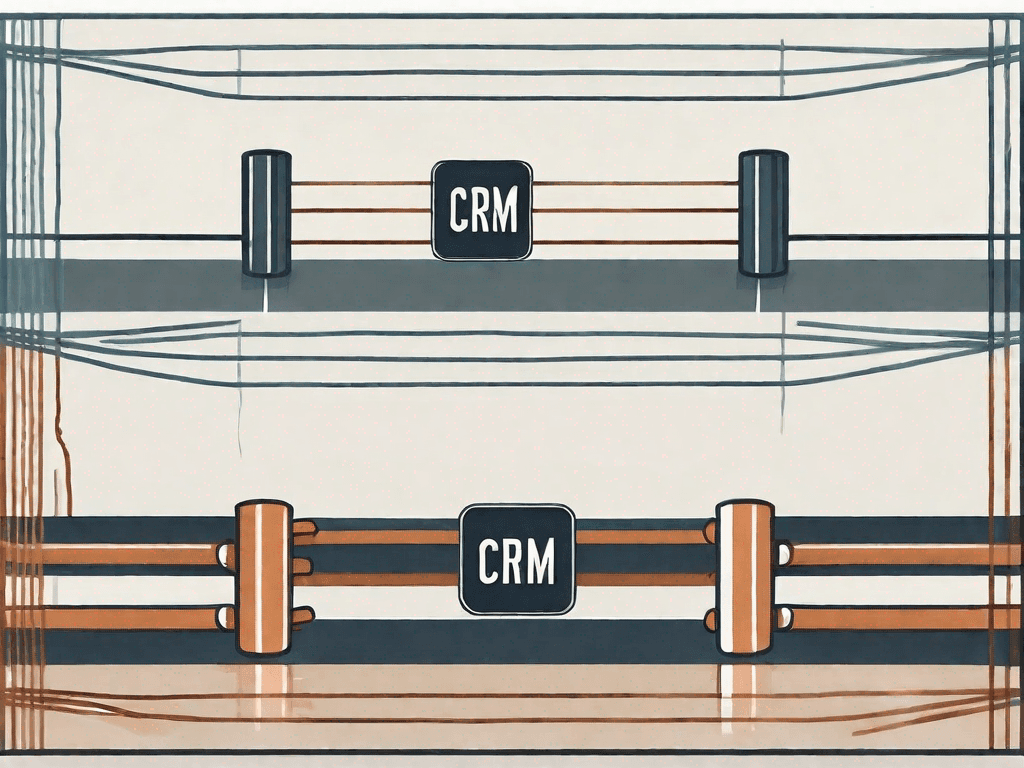
Why you should not use Airtable as CRM
In today's digital age, businesses of all sizes are constantly searching for innovative and efficient ways to manage customer relationship management (CRM). One popular option that has gained significant traction in recent years is Airtable - a versatile and user-friendly platform for organizing and collaborating on data. While Airtable has a plethora of applications, it falls short as a capable CRM solution. In this article, we will explore the limitations of Airtable as a CRM and suggest alternative options that can better meet your CRM needs
The Limitations of Airtable as a CRM
Airtable, with its visually appealing interface and customizable features, has gained popularity as a versatile tool for managing various aspects of business operations. However, when it comes to sales management, Airtable falls short in several key areas. While it may serve as a basic repository for customer information, it lacks the essential functionalities required for effective sales management. Let's explore some of the limitations of Airtable as a CRM.
1. It's not designed to Drive Sales
While Airtable offers a visually appealing interface and customizable features, it fails to provide crucial tools for tracking leads, managing sales pipelines, and nurturing customer relationships. The absence of a dedicated sales module makes it challenging for businesses to streamline their sales processes.
1.1 - Lack of Automation Features
In today's fast-paced business environment, automation is key to maximizing efficiency and productivity. Unfortunately, Airtable falls short in terms of automation capabilities. It lacks functionalities such as automated lead distribution, email marketing integration, and task automation. Without these features, businesses may find themselves bogged down by manual and time-consuming tasks, impeding their ability to effectively drive sales.
Imagine a scenario where a sales team receives a high volume of leads on a daily basis. Without automated lead distribution, the team would have to manually assign leads to individual sales representatives, leading to delays and potential errors. Additionally, the lack of email marketing integration means that businesses using Airtable as a CRM would need to rely on separate email marketing tools, resulting in fragmented data and a disjointed workflow.
1.2 - Limited Reporting and Analytics
Accurate data analysis is crucial for identifying trends, making informed decisions, and tracking the success of various sales and marketing strategies. However, Airtable's reporting and analytics capabilities are limited. It does not provide advanced reporting functionalities, such as customizable dashboards, sales funnel visualization, or in-depth analytics. Without comprehensive reporting tools, businesses may struggle to gain actionable insights and measure the effectiveness of their CRM efforts.
For example, a sales manager using Airtable as a CRM may find it challenging to track the progress of leads through the sales pipeline. Without a visual representation of the sales funnel, it becomes difficult to identify bottlenecks and optimize the sales process. Additionally, the lack of in-depth analytics makes it challenging to measure key performance indicators (KPIs) and evaluate the success of different marketing campaigns.
In conclusion, while Airtable offers a visually appealing and customizable interface, it falls short in providing the necessary tools for effective sales management. The lack of automation features and limited reporting and analytics capabilities hinder businesses from maximizing their sales potential. As businesses continue to prioritize sales growth, it becomes crucial to explore CRM solutions that offer comprehensive functionalities tailored specifically for driving sales.
2°) What Should You Use Instead of Airtable as CRM?
When it comes to choosing a CRM (Customer Relationship Management) system, businesses have a plethora of options available. While Airtable may serve as a general data management tool, it may not be the most suitable choice for businesses looking for a comprehensive CRM solution. In this section, we will explore two alternative options that cater to specific business needs: a Sales CRM and a Marketing CRM.
2.1 - A Sales CRM
For businesses primarily focused on sales, a dedicated Sales CRM is essential. A Sales CRM provides robust features specifically designed to optimize sales processes, such as lead management, opportunity tracking, and sales forecasting. These features enable businesses to streamline their sales pipelines, automate repetitive tasks, and gain valuable insights into their sales performance.
One popular Sales CRM option is Salesforce. Known for its extensive capabilities, Salesforce offers a comprehensive suite of tools to manage sales activities effectively. From lead generation to deal closure, Salesforce provides a seamless experience for sales teams. Additionally, Salesforce offers advanced reporting capabilities, allowing businesses to track and analyze their sales performance in real-time.
Another notable Sales CRM option is HubSpot CRM. HubSpot CRM provides a user-friendly interface and integrates seamlessly with other HubSpot products, such as the marketing and service hubs. This integration allows businesses to align their sales, marketing, and customer service efforts, resulting in a more cohesive and efficient customer experience.
Pipedrive is yet another Sales CRM that deserves mention. Pipedrive focuses on simplicity and ease of use, making it an ideal choice for small and medium-sized businesses. With its intuitive interface and customizable sales pipelines, Pipedrive empowers sales teams to manage their leads and deals effectively.
2.2 - A Marketing CRM
On the other hand, if your primary focus is marketing, a Marketing CRM can help you streamline your marketing efforts and drive better customer engagement. Marketing CRMs often offer features such as email marketing automation, lead nurturing, campaign tracking, and social media integration. These features enable businesses to create targeted marketing campaigns, nurture leads, and track the effectiveness of their marketing initiatives.
One popular Marketing CRM option is Marketo. Marketo provides a comprehensive suite of marketing automation tools that enable businesses to create personalized and engaging marketing campaigns. With features like lead scoring and nurturing, Marketo helps businesses optimize their lead generation and conversion processes.
HubSpot Marketing is another notable Marketing CRM option. HubSpot Marketing offers a range of tools to attract, engage, and delight customers. From creating landing pages and email campaigns to analyzing website traffic and social media interactions, HubSpot Marketing provides businesses with the necessary tools to enhance their marketing efforts.
ActiveCampaign is also worth considering as a Marketing CRM. ActiveCampaign offers a robust set of features, including email marketing automation, CRM integration, and lead scoring. With its powerful automation capabilities, ActiveCampaign enables businesses to deliver personalized and timely marketing messages to their target audience.
While Airtable may have its merits as a general data management tool, it falls short of being a reliable and comprehensive CRM solution. Its lack of dedicated sales and marketing features, limited automation capabilities, and reporting constraints make it ill-suited for businesses aiming to grow their customer relationships and boost sales. By opting for a specialized Sales CRM or a Marketing CRM, businesses can leverage dedicated functionalities and superior reporting capabilities, enabling them to drive sales and marketing initiatives more effectively.











![The 8 Best Social CRM Software in 2025 [Comparison]](https://framerusercontent.com/images/RYHyYapdgIi83BEWtMdX418.png)
![The 6 Best LinkedIn CRM in 2025 [Comparison]](https://framerusercontent.com/images/Luywfni7ZKjb19yghbhNPy4I4qQ.png)




![The 5 Best Twitter CRM [Comparison]](https://framerusercontent.com/images/EWcbvYnVZglJLO8jp3OlHkTvsHo.png)

























































































































































































